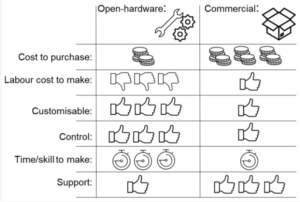Raspberry Pi minicomputers, combined with microfluidic technologies, have revolutionised the development of low-cost and customisable systems in life sciences. These systems enable high-resolution microscopy and automated image capture, allowing mammalian and bacterial cells to be imaged and various biochemical tests to be performed. Open-source hardware offers the opportunity to develop complex laboratory instruments at much more affordable prices than commercial equipment, but with some challenges such as construction and operational skills, good documentation and rapid prototyping. These technologies have the potential to increase the efficiency and cost-effectiveness of microfluidics-based experiments.
Check out the web link below to access the paper!

